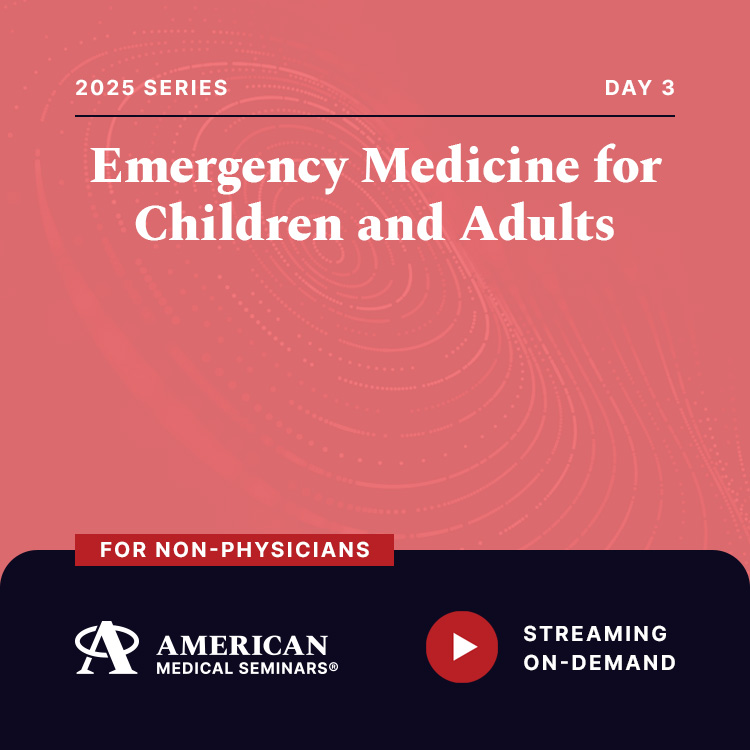Product Description
CME Sponsors: American Medical Seminars, Inc.
Activity Title: Emergency Medicine for Children and Adults – Day 3
Recorded Dates: 8/14/2024
Original Release Date: July 1, 2025
Expiration Date: July 1, 2028
Presenting Faculty: Mark Joffe; Leslie Zun;
Fluid and Electrolyte Emergencies
Attendees of this presentation using AAP guidelines and evidence-based medicine, should be able to:
- Assess the severity of dehydration in children based on recent published research.
- Determine when oral rehydration and subcutaneous rehydration is appropriate for pediatric patients.
- Assess the clinical presentation and treatment of children with abnormalities in serum sodium and potassium concentrations.
Dilemma of the Foreign Body – Aspirated or Ingested
Attendees of this presentation using evidence-based medicine, should be able to:
- Evaluate the epidemiology and clinical presentation of aspirated versus ingested foreign bodies.
- Recommend appropriate radiographic evaluation of children with a history that may suggest of foreign body ingestion.
- Determine the diagnostic approach and radiographic interpretation of children with aspirated foreign bodies.
Psychiatric emergencies
Attendees of this presentation should be able to:
- Differentiate how to evaluate psychiatric complaints
- Develop strategies to evaluate and treat common and uncommon psychiatric emergencies
Suicide and Violence
Attendees of this presentation should be able to:
- Analyze the process to evaluate patients for risk of suicide
- Determine the difference between suicide screening and suicide risk assessment
- Formulate the next steps after risk assessment, including discharge
- Employ strategies to reduce incidence of violence in healthcare institutions
Common office emergencies – shortness of breath, abdominal pain, syncope, seizures, endocrine, trauma
Attendees of this presentation should be able to:
- Evaluate common emergency conditions seen in the office
- Consider appropriate treatment of emergency conditions in the office
- Determine which patient needs to be transferred to the emergency department
- The receipt for any incentive-associated purchase will designate the value of the gift card separately from the cost of the learning activity.
- This incentive may have implications on your tax reporting obligations. Any reimbursed amount must be declared as personal income for tax purposes.


